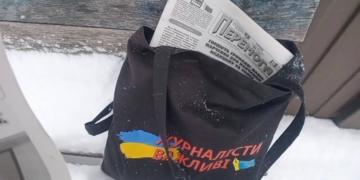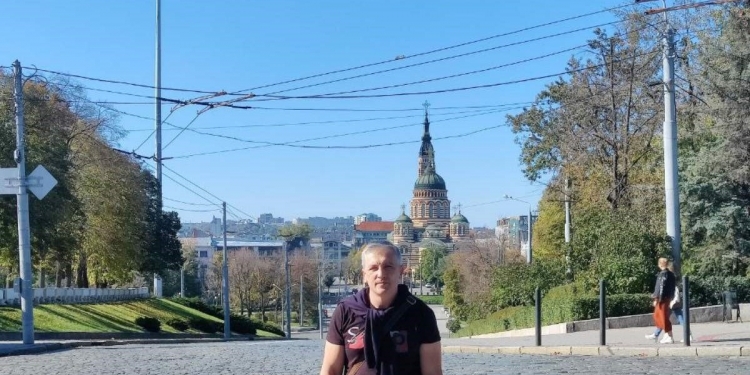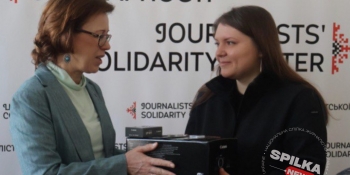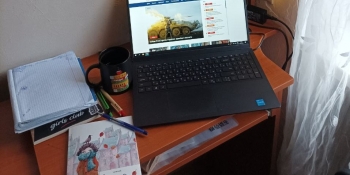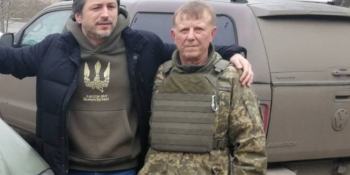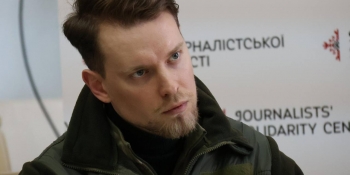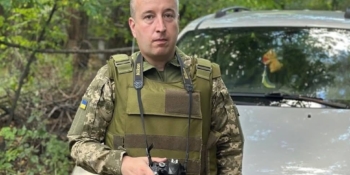Roman Kryvko is a journalist with 17 years of experience. All his life he lived in Kharkiv: he grew up, got an education, got married, and his sons were born here. But when at dawn on February 24, an explosion broke all the glass in the windows on the balcony of his apartment, he urgently evacuated his family, and then he had to save himself. Roman told journalists of the National Union of Journalists of Ukraine (NUJU) about the first explosions, chaos in the city, separation from his family and returning home. The meeting took place in Ivano-Frankivsk, where Roman found a warm professional shelter in the Journalist Solidarity Center.
It was not easy to leave Kharkiv. The city was bound by traffic jams. Roman wanted it to be the plot of a movie about the apocalypse, and the frightened children nearby, the chaos around and the sounds of explosions somewhere on the outskirts brought back the terrible reality. He had to realize that what is happening right now in front of his eyes is irreversibly changing the lives of all Ukrainians.
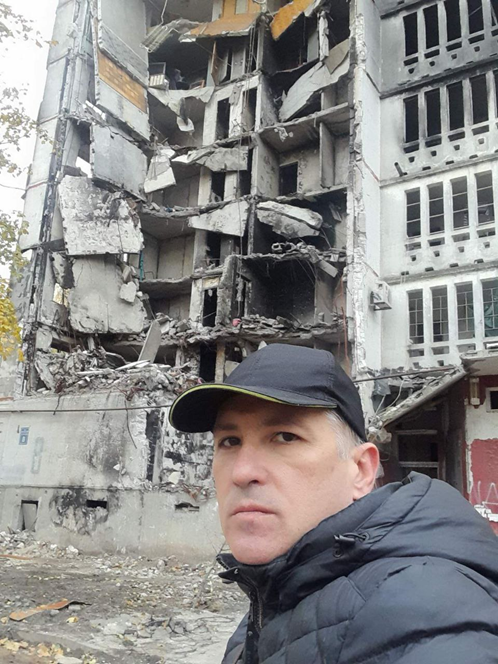
“It was like in an American blockbuster, when something happens and people leave en masse. No one paid attention to the traffic lights, because everyone wanted to break through the intersection as quickly as possible. This had never happened before in Kharkiv. People did not believe that such a thing could happen, so no one was ready for evacuation,” the journalist testifies.
For several days, the family lived in a village with relatives near Kharkiv. In the end, his wife and younger son went abroad, and the older one decided to stay with his father. And on March 1, they returned to Kharkiv.
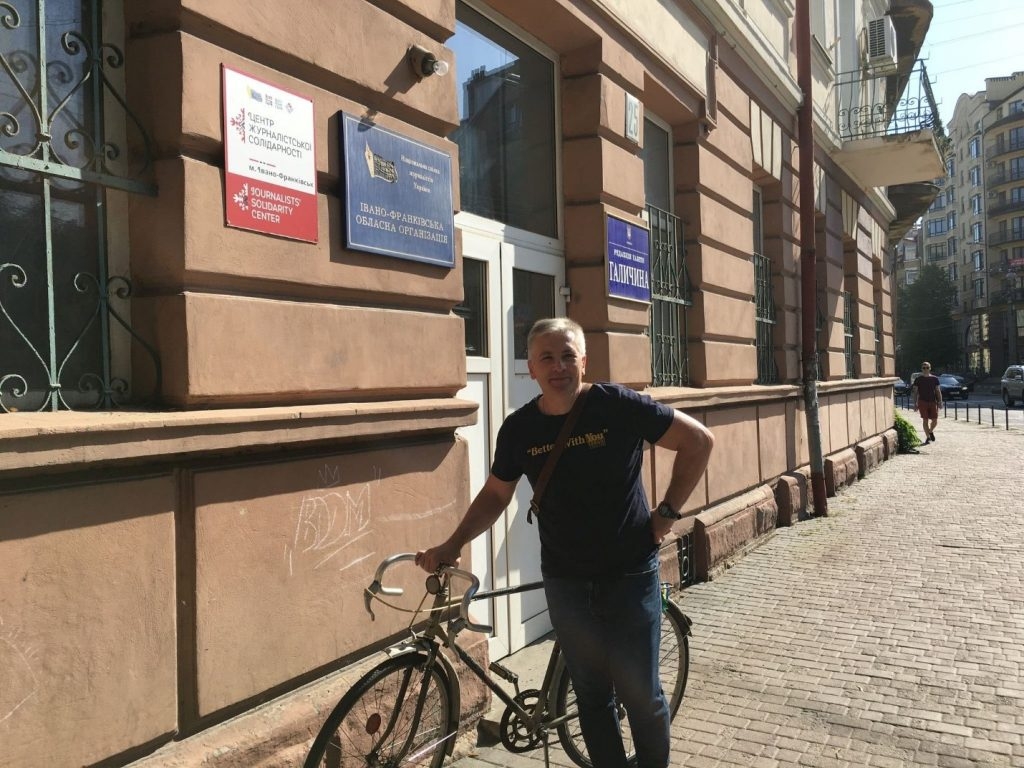
In late March, the shelling became much more intensive. Power outages began. Water was brought in tanks and bottles. It was difficult to live in such conditions, and it was even more difficult to continue working. Roman and his son had to leave Kharkiv, although it was incredibly hard on the heart to do so.
They spent several days at a hostel in Ivano-Frankivsk. Later, Roman contacted his colleagues from Suspilne, they helped him find housing. And later, thanks to the Ivano-Frankivsk Journalist Solidarity Center, Roman received an office and equipment. With them the beloved work returned.
Little by little, Roman got used to living in another city, at a distance from his wife and youngest son, from faithful friends from Kharkiv. And so that at least something would remind him of Kharkiv, dear to his heart, he bought a bicycle – not just any bicycle, but one made in Kharkiv.
In October, Roman decided to return to Kharkiv for a few days, because the preparations for the heating season continued. He says that he was most surprised by the fact that against the background of broken high-rise buildings, life in his city was raging.
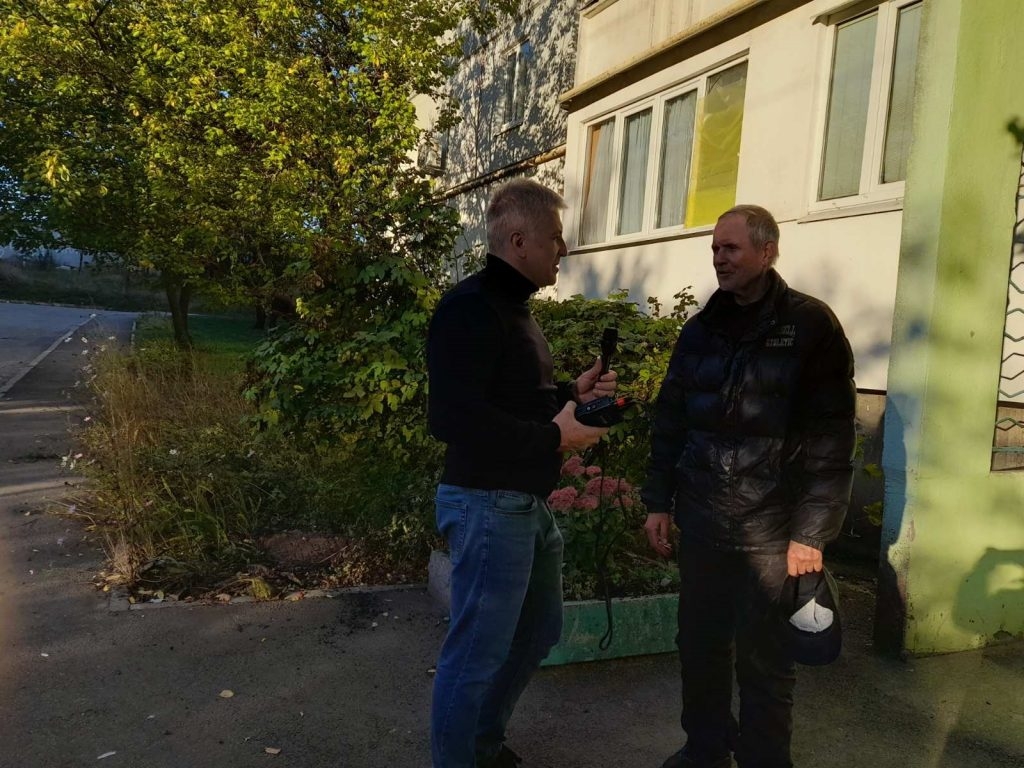
Roman is 100% sure of one thing – he will definitely return home, to his beloved Kharkiv. First, he says, the city must be rebuilt. And secondly, no one can better tell about the life of the Kharkiv Region free from the occupiers.
“I no longer have any reasons, including moral ones, to stay outside the city, because the authorities have started preparing it for winter. I hope that it will be possible to winter there. This is the first. And secondly, I really want to make some “live” reports, communicate with people not only by phone, but also in person. This is purely journalistic work. People should know how to behave safely, where to get help, what the situation at the front is, what is happening in the city – this is the task of local journalists. This, in fact, is how I see my work. And I will do it for as long as I am in the city, as long as I am in the profession. This is my journalistic mission,” says Roman Kryvko.
JOURNALISTS ARE IMPORTANT. Stories of Life and Work in Conditions of War is a series of materials prepared by the team of the National Union of Journalists of Ukraine (NUJU) with the support of the Swedish human rights organization Civil Rights Defenders.





